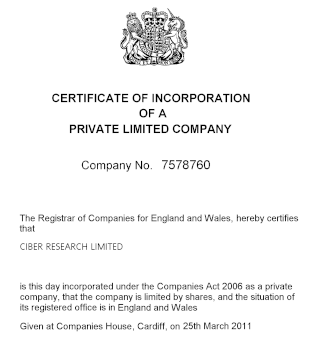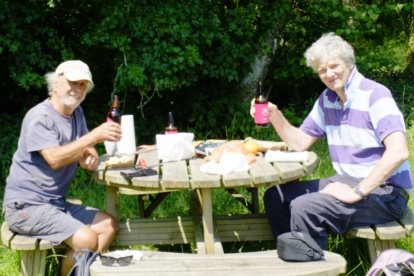Impact & pressure
2021-12-14 17:09
Writing for the LSE Impact Blog David Nicholas suggests that where pressures from the pandemic have been felt most acutely, particularly in the UK, US and France, it has often aligned with perceptions of ongoing structural issues within academia.
another year
2021-12-12 13:48
Our harbingers-2 project enters its second year and we are now collating the followup interviews conducted in September. Some work-in-progress reports:
In November Blanca Rodríguez-Bravo (Universidad de León) talked about the project to DECriS
In October Chérifa Boukacem-Zeghmouri told
TheMetaNews
[PUB]🍀 Les jeunes dans la bataille médiatique
« Nous ne l'avions pas anticipé : parmi les vingt jeunes chercheurs français interrogés, presque tous pointent le rôle et la responsabilité des chercheurs dans la diffusion des connaissances scientifiques vers les citoyens. Certains souhaitent changer de carrière. »
Revisiting the Google Generation
2021-07-27 14:20
The Scholarly Kitchen revisits the Google Generation:
Evidence of changing researcher practices and scholarly communications, from studies like those from the CIBER research team, are now being integrated into user-driven publishing strategies. And, looking back, we can see that many of these changes are not specific to the younger set, but in fact, Google (and other disruptors) have wrought lasting changes on the information experiences of all of us
first cut
2021-07-09 09:02
The first round of interviews for Harbingers-2 have now been transcribed. We now have the task of collating and analysing a database of some 30,000 data points. This will take some time. Meanwhile here are some early impressions.
Harbingers-2 Early
Insights June 2021 After preparing transcipts and translations our correspondents were asked to provide an informal summary prior to encoding and analysis. This documment presents those first impressions, which vary in length and emphasis, from eight countries.
Harbingers-2 ECRs in their own words
A selection of quotes from the first round of interviews: perceptive, interesting, topical, or unusual…
the promise of great ideas
2021-05-28 13:26
Sloan Foundation Technology Program Newsletter May 2021
It’s now been well over a year since we started to spend most of our working time in some combination of Zoom and Slack, and while the Technology team is thrilled to all be vaccinated and to resume some in-person interaction, we’ve been reflecting on what to take forward from this digitally-mediated remote experience.
Last spring, we made a set of grants under our Exploratory program that were fundamentally reactive to the pivot from physical to virtual, supporting Hack Weeks, field courses, conferences, and pen source contexts. We also seized the opportunity to extend the Harbingers longitudinal study to understand pandemic-related impacts on early career researcher practices around the world…
10 years
2021-03-25 10:27


It's our birthday!
młodzi naukowcy, pandemia, komunikacja naukowa
2021-04-09 17:14
Świgoń Marzena, Nicholas David (2020). Harbingers 2. Zapowiedź międzynarodowych badań postaw i zachowań związanych z komunikacją naukową młodych badaczy oraz ich karier naukowych w dobie pandemii.
"Media – Kultura – Komunikacja społeczna". Nr 3, s.139-141.
talent implosion
2021-03-11 19:29
…in the pandemic-incurred
new realities of the research undertaking… the current cohort of neophyte
researchers might even turn out to be a
lost generation, with an ensuing danger
of talent implosion
Herman, Eti; Nicholas, David; Watkinson, Anthony; Rodríguez-Bravo, Blanca; Abrizah, Abdullah; Boukacem-
Zeghmouri, Chérifa; Jamali, Hamid R.; Sims, David; Allard, Suzie; Tenopir, Carol; Xu, Jie; Świgoń, Marzena;
Serbina, Galina; Cannon, Leah Parke (2021). “The impact of the pandemic on early career researchers: what we
already know from the internationally published literature”. Profesional de la información, v. 30, n. 2, e300208.
https://doi.org/10.3145/epi.2021.mar.08
taking the pulse
2021-02-25 21:33
With the first round of study interviews for Harbingers-2 complete we present our first impressions:
A resilient community. ECRs show less negativity than we might have supposed, but this
could be because they are strivers, doing
everything they can to adapt and succeed. Most US ECRs
reported no substantive changes were expected to their research career due to the
pandemic. 'Delay, but not change' seems to be a recurring theme; they felt
relatively secure in their current situation —maybe helped by the 1-year extension of tenure
requirements by universities in US and France.
3/24
2021-02-03 13:44
Harbingers-2, three months in to a 24 month study. We find that the pandemic has not created brand-new challenges for the scholarly communication system; it has amplified and accelerated problems that have long been lurking. The ECRs we are interviewing remotely are cognisant of this and telling us about their scholarly concerns, beliefs and behaviours. Their interest and attention on the ways and means of academic communication has intensified since our original Harbingers study.
.COM
2020-12-31 14:47
From 1. January 2021 our .eu domain will no longer function; please amend any bookmarked links to ciber-research.com
Impact and legacy
2020-12-09 10:19
David Nicholas discusses the challenges facing early career researchers as a result of the pandemic and outlines how a new longitudinal, qualitative study involving 160 Early Career Researchers (ECRs) from 8 countries will seek to understand how they fare over the next two years. LSE Impact of Social Sciences blog


